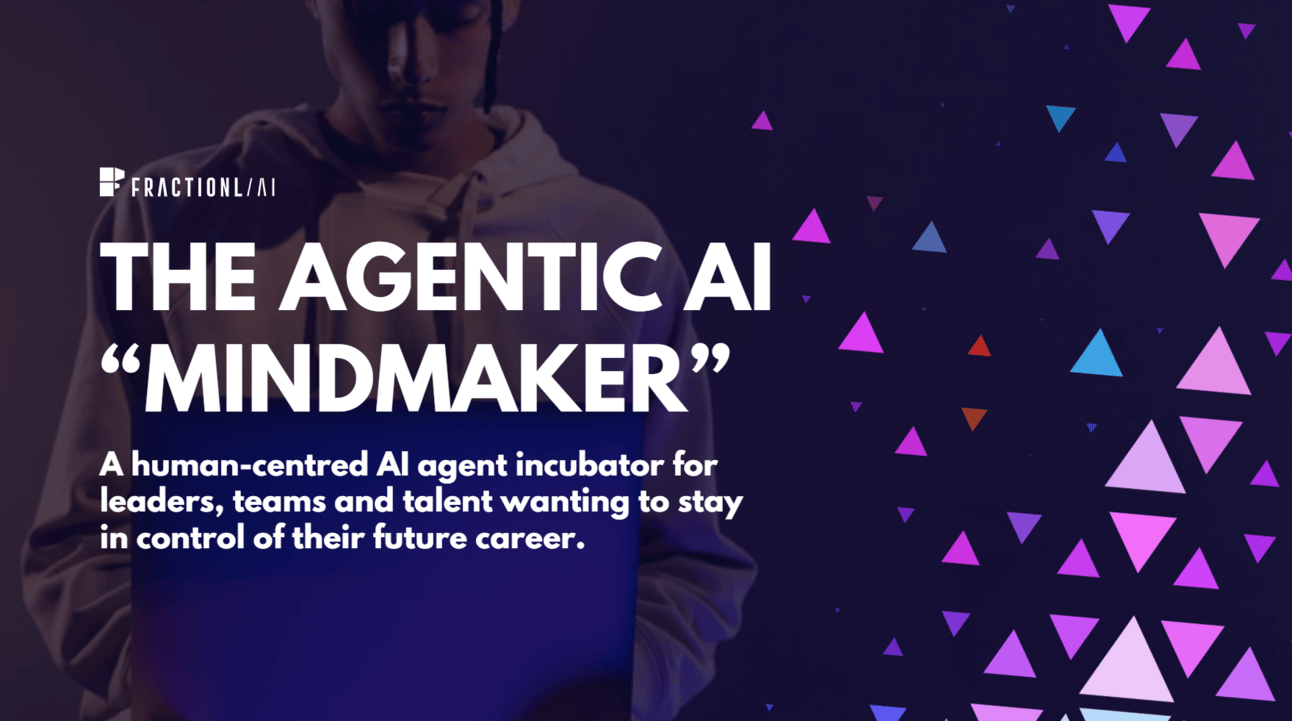- Fractionl AI
- Posts
- The future of work: how agentic AI will create two worlds that look nothing like the current one.
The future of work: how agentic AI will create two worlds that look nothing like the current one.
AI agents are the talk of the town. We’re seeing two distinct worlds emerge; one where some are seeing instant results (usually when generating content, or automating basic workflows) and another world of hype and disillusionment - which is currently more so around enterprise/business implementation.
Whichever way you swing, AI agents will most certainly make up more of an average business’ workforce than humans over the course of the next decade - and that affects the human role in the workforce.
So here’s a look at where we’re heading.
Meta offers multi million dollar signing bonuses to OpenAI researchers. The same week, TCS mandated 600,000 employees hit 86.5% utilization of their consulting hours, or face consequences.
Two headlines with one brutal truth: the middle ground in careers is vanishing faster than a TikTok trend.
Tyler Cowen predicted this in "Average is Over": a "hyper-meritocracy" where small capability differences create massive outcome differences. We're about to live that prophecy.
Welcome to the two-speed working economy: you're either indispensable enough to command extraordinary salaries, or facing intensifying pressure in traditional roles. The comfortable middle? It'll be compressed to pulp by algorithmic efficiency.
An example from the legal industry:
Harvey AI transforms document review, contract drafting, and legal research. Junior associates doing routine work face existential pressure.
Meanwhile, star lawyers using Harvey to amplify their strategic thinking command higher fees than ever. They're not competing with AI, they're orchestrating it.
The pattern repeats across industries. AlphaSense gives CEOs instant market insights without analyst teams. Cursor enables anyone to write code. Decagon replaces customer service departments. Yet the humans who master these tools become exponentially more valuable.
The economics are simple: When AI handles execution, human judgment becomes the scarce resource. When one expert with AI can deliver what ten previously could, the economics justify paying that expert like a professional athlete.
Boston Consulting Group's recent study shows a fascinating bifurcation: consultants using AI properly delivered 40% better solutions in 30% less time. But those who used it poorly performed worse than the control group. The tool doesn't create value, the orchestration does.
The pace of change is crazy, and about to accelerate further.
But we’re adaptable, if we choose to be. Here are 3 quick strategies to ORCHESTRATE AI so you’re the right side of the incoming compression:
1. Stack skills horizontally.
What this means Combine your core expertise with adjacent capabilities - not more of the same, but unrelated in a way that extends your creative capability. | An example A marketer adding AI prompt engineering to their copy, and eventually orchestrating ghostwriter agents to ideate and flesh out human ideas will command a premium rate. |
2. Monopolise the context you are surrounded by.
Become the person who understands your industry's unique constraints, relationships, and opportunities that generic AI can't grasp. Context is the new moat.
What this means Your curiosity and ability to connect dots across departments becomes a moat as the first wave of agents specialize in repetive tasks. | An example An employee that thinks outside of the box and understands the WHY behind what they do, and goes from doing repetitive tasks to finding genuine problems will command a premium rate. |
3. Spread bet across tools, platforms and AI models.
Don't just learn ChatGPT! learn orchestration principles that work across any AI platform. Build portable skills, not tool dependencies.
What this means It’s not a good idea to just use ChatGPT, and it’s doubly not good to only use it like you’d use Google. Use it as a co-pilot, map each tool to your brain and start combining different tool types. | An example A 1 person, $1m founder will not only have figured out that Claude is a better co-writer but that ChatGPT is a better overall brain… but they’re able to use AI automation tools to sequence tasks, as well as vibe code using coding agents. |

Apparently that’s me.
The uncomfortable truth…
Playing it safe has become the riskiest career move. The "stable" middle management roles are first in line for AI replacement. The volatility of fractional work (multiple clients, project-based income, continuous learning) is becoming the safer bet.
Maor Shlomo proved this with Base44: one employee, $10M ARR in six months, $80M Wix acquisition. While others built teams, he built systems.
The talent war isn't just about AI companies competing for researchers. It's about every professional choosing which side of the compression they want to land on as the safe middle disappears under our feet.
In one week, I’ll be launching a palate of workshops and self-discovery toolkits for you to begin the journey of self reflection and levelling up.
Stay tuned, I’m excited to bring it to you and help your journey!
Sneak peek below 😊
